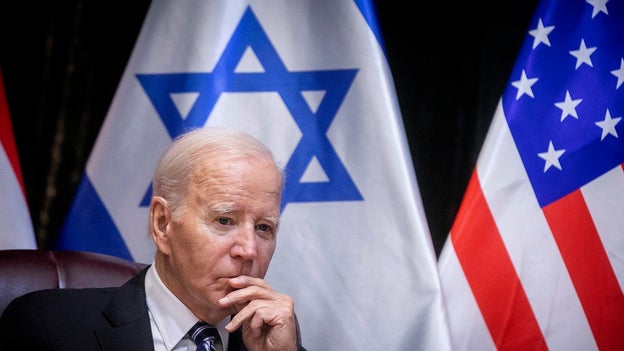The Unfolding Crisis: A Deep Dive into the Israel-Hamas Conflict

The Israel-Hamas conflict, one of the world's longest-running conflicts, has recently escalated, causing widespread death, destruction, and displacement of thousands of people. This conflict has significantly disrupted trade, supply chains, and investment, often leading to volatility in international markets. This blog post aims to provide a comprehensive understanding of the current situation, its implications, and the global response.
The Conflict Escalates
On October 7, 2023, Hamas led a force over the Israel-Gaza border, slaughtering 1,400 Israeli men, women, children, and elderly in what was the deadliest terror attack in Israel's history. This surprise attack marked the beginning of a war that has since claimed the lives of over 4,000 people. Israeli Prime Minister Benjamin Netanyahu compared Hamas to Nazis and ISIS, calling them the "new Nazis" and accusing them of committing a "double war crime" by targeting and murdering civilians with unprecedented savagery and using their own civilians as human shields.
The Global Response
The conflict has ignited a diverse range of reactions from nations across the globe. The United States unequivocally condemned the militant group Hamas and voiced solidarity with Israel. Conversely, countries like Egypt, Canada, Iran, Turkey, and Sudan supported Palestine and Gaza. Notably, Saudi Arabia, Iran, and Qatar supported Palestine and criticized Israel for its treatment of Palestinians.Canada took a unique stance by condemning the terror attack by Hamas on Israel while extending support to Palestinian civilians in Gaza. Canadian Prime Minister Justin Trudeau emphasized the humanitarian crisis in Gaza, urging both sides to respect international law, including humanitarian and human rights law. Canada pledged $10 million in humanitarian assistance, including food, water, medical aid, and protection services to those affected by the crisis in Gaza, the West Bank, and Israel, with assurances that none of these resources would go to Hamas.
Impact on Global Corporations
The Israel-Hamas conflict has taken a toll on international businesses operating in the region, prompting various companies to adapt swiftly to ensure the safety of their employees and the continuity of operations. Airlines from Asia, Europe, and the U.S. have temporarily suspended direct flights to Tel Aviv. In the financial sector, JPMorgan Chase’s CEO, Jamie Dimon, warned of the conflict’s far-reaching "ripple effects," leading the Wall Street bank to ask more than 200 employees in Israel to work from home. Goldman Sachs, Morgan Stanley, and Citigroup have similarly asked their staff in Israel to do the same.
The Road Ahead
As the conflict continues to unfold, it necessitates adaptability among global corporations and nations. The world watches closely as the situation develops, hoping for a resolution that will bring peace to the region and stability to the global markets.
Sources:
- Fox News: "October 17, 2023 Israel-Hamas War"
- CNBC: "Israel-Hamas Live Updates"
- Flashpoint: "The Israel-Hamas War: Insights Through an Intelligence Lens"
- Fox News: "October 16, 2023 Israel-Hamas War"
- NBC News: "Israel-Hamas War Live Updates"
- GlobalEDGE: "Global Corporations Respond to Israel-Hamas Conflict: A Closer Look"
- Al Jazeera: "Israel-Hamas Updates"
- Council on Foreign Relations: "The Israel-Hamas War, With Elliott Abrams and Steven Cook"

Comments ()